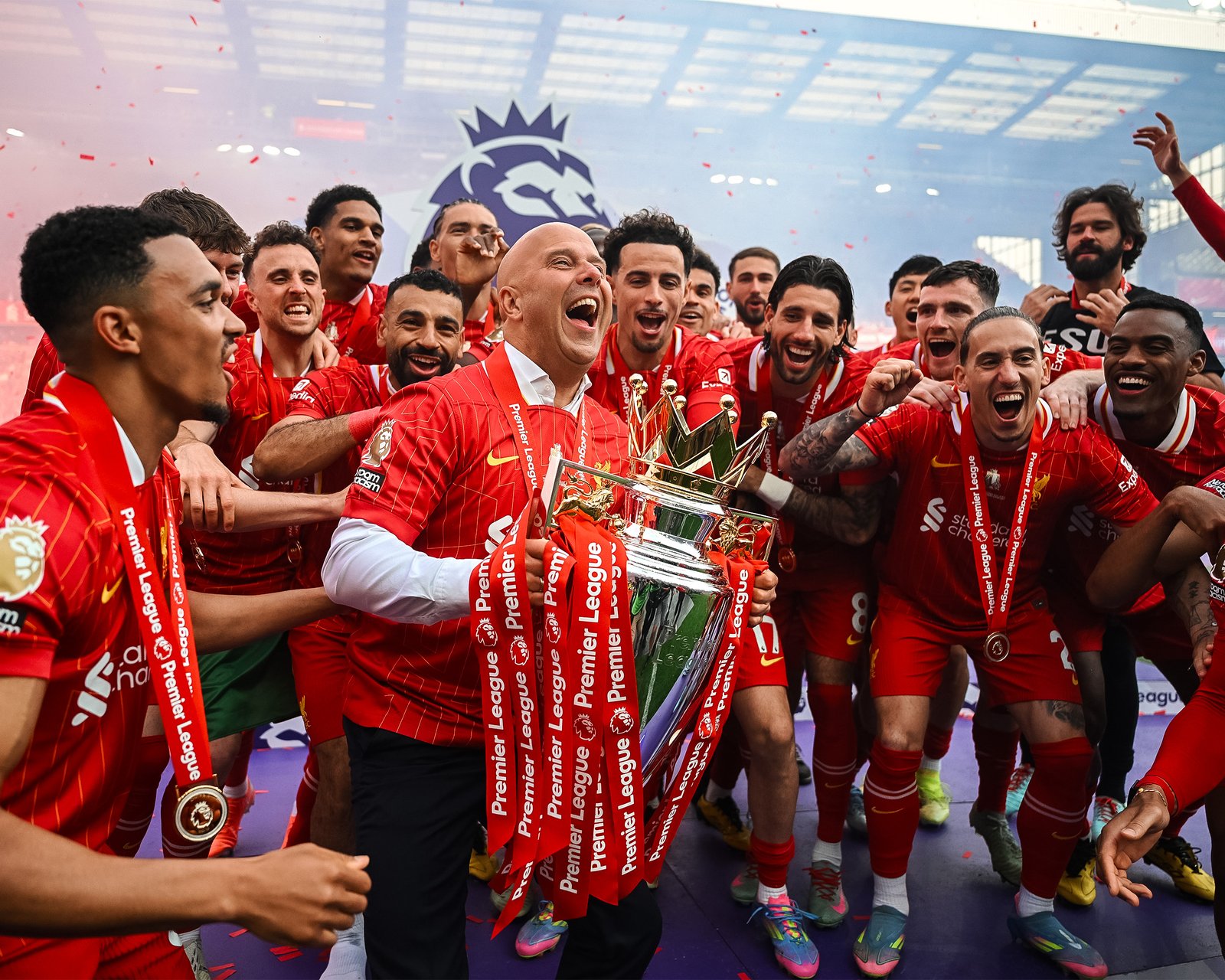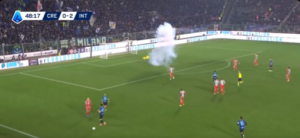Everything happens in moments. The same happened in the Premier League, as it also decided in moments.

Arne Slot came into Liverpool and beat the expectations of many, as fans and pundits didn’t expect the Dutch manager to get this Liverpool team to fit into his style of play, let alone win the Premier League.
Liverpool had an incredible run this season, but most importantly, they had moments where they ran away with the league.
So, what moments won Liverpool the league? Here are six moments that defined Liverpool’s title-winning season.
Beating Manchester City Twice.
One of the moments that changed the game for Liverpool was when they beat reigning Premier League Champions Manchester City twice.
In the first game, City were still top of the log but suffered a decline after losing Rodri to a season-ending injury. In both games, Liverpool wasted no time in asserting themselves and getting the victory that they needed.
Liverpool were absolutely dominant, especially in the first game. Beating Manchester City wasn’t just about getting the points, it was a message to the other teams in the Premier League that they were here to play.
Mohamed Salah’s Incredible Premier League Season

One of the moments that turned Liverpool’s season around is the incredible feats that Salah achieved in the 2024/25 Premier League season. This is probably the greatest individual season ever seen from a player in the Premier League. He gave his all to Liverpool, and he carried them on his back to get this league.
He amassed 29 goals in the league in this run, and won the player of the year award and the Golden Boot award. He finished as the top assister in the Premier League with 18 assists. This historic moment in Salah’s career changed Liverpool’s season.
Gravenberch Found New Life
Martin Zubimendi may have rejected Liverpool in the summer leading to the 2024/35 season, but he made the club discover a hidden gem in Ryan Gravenberch. Gravenberch found new life under Arne Slot as he fit into the 4-2-3-1 formation perfectly. He was deployed as a No.6, and he discovered a new form.

Slot found that he had the possibility of playing there and he gave him a chance, and he found new life. He impressed all season and even got a nomination for the Premier League player of the season. Gravenberch was an instrumental part of Liverpool’s title-winning season, and he won the Premier League Young Player Award as well.
The Premier League Match vs Fulham
One of Liverpool’s defining moments came in a seemingly disappointing 2-2 draw with Fulham at Anfield. On paper, dropping four points in two games after the epic 3-3 at Newcastle looked concerning, but context is everything. Liverpool fell behind and were reduced to ten men inside 17 minutes after Andy Robertson’s straight red for a professional foul.
Instead of folding, the Reds rallied. Cody Gakpo smashed home the equaliser just after half-time, and despite Fulham regaining the lead through Rodrigo Muniz, Diogo Jota’s 86th-minute strike rescued a priceless point. As Fulham full-back Antonee Robinson admitted, “Credit to Liverpool: it didn’t feel like they had 10 men at all!” That single point felt like a victory, underlining the squad’s unbreakable spirit and champion mentality.
Arsenal Suffer Multiple Injuries
One of the things that changed the title race and handed Liverpool an advantage was injuries that plagued Mikel Arteta’s Arsenal. As we’ve heard for months now from Mikel Arteta, Arsenal have endured a lot of injuries this season, but that only begs the question: why didn’t they do anything about it?
Their lack of a prolific No.9 has been obvious for years now, and yet they once again decided against bringing in a striker during the summer transfer window.

Even more unforgivably, they didn’t make a move for a goal-scorer during the January transfer window until after the dreadfully inconsistent Gabriel Jesus was sidelined with a cruciate ligament tear and, by that stage, Aston Villa had already agreed to sell Jhon Duran to Al-Nassr to solve their financial issues, meaning there was no chance of them agreeing to let Arsenal have Ollie Watkins.
Consequently, the Gunners were left relying on Kai Havertz, an attacking midfielder, to lead a forward line that was still missing Bukayo Saka – Arsenal’s best attacker by some distance tore his hamstring just before Christmas – and the Germany international almost inevitably suffered a serious injury of his own just after the winter window closed.
Despite all of their issues, Arsenal did a decent job of trying to keep up with Liverpool into the spring, taking 23 points from a possible 27 between December 21 and February 15. But their glaring lack of a finisher was eventually exposed in a terrible 1-0 loss at home to West Ham, which relieved a huge amount of pressure on the leaders ahead of their trip to the Etihad the following day.
Bouncing Back from Forest Loss
After a faultless start under Arne Slot, three clean sheets in three games, including a 2-0 win over Brentford sandwiched between victories at Ipswich and Manchester United, Liverpool’s momentum hit a bump returning from the September international break.
On a damp evening at Anfield, Nottingham Forest frustrated the Reds, with Callum Hudson-Odoi’s clinical strike from the edge of the area handing Slot his first loss in charge.
That setback could easily have spiralled into a crisis of confidence, but Liverpool’s response was emphatic.
Just three days later, they found themselves back in action in the San Siro, facing AC Milan in the Champions League. An early Christian Pulisic goal threatened to compound their woes, but instead of crumbling, the squad showed the steel and self-belief that would define their title charge.

Mohamed Salah levelled before halftime, Luis Díaz put them ahead, and Darwin Núñez sealed a 3-1 victory, silencing any doubters and exorcising the ghosts of the Forest defeat.
Slot reflected on that night as a turning point: “To overturn a 1-0 deficit after five minutes, with the memory of the Forest result still fresh in our minds, and do so with such authority—our players took the game by the scruff of the neck.” Indeed, rather than stumbling, Liverpool went on to win their next seven matches without conceding once.
Between that Anfield setback and the close of the calendar year, Liverpool accumulated an astonishing record: 20 victories, three draws, and zero defeats. It was this run—born from resilience, tactical clarity, and relentless belief—that set the stage for the dominant campaign that followed, reminding everyone exactly what it means to be champions.




